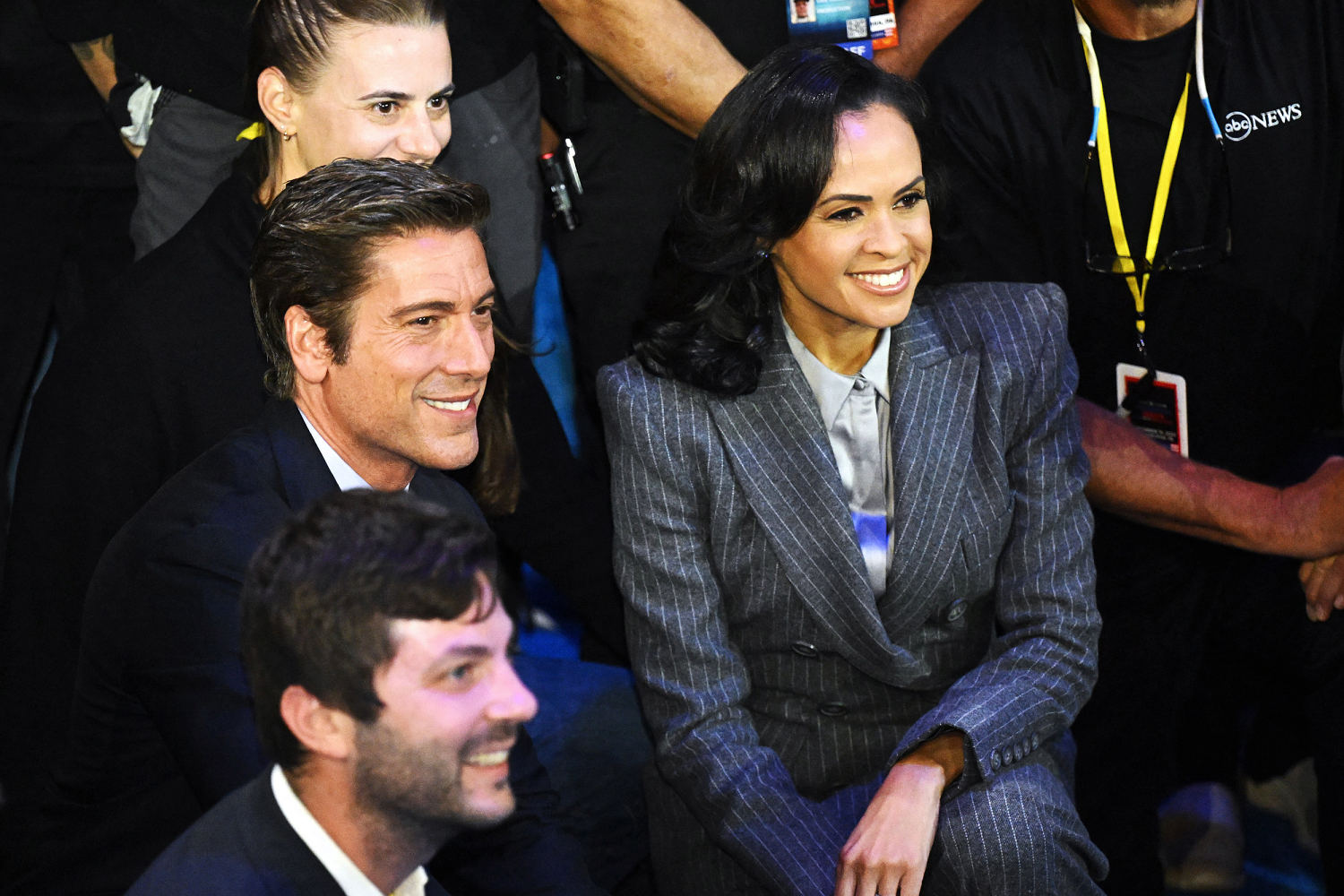
Moderating a presidential debate can be a thankless job, especially in the current overheated political environment. The tightrope walk of modern journalism means never pleasing everyone, and the constant peril of being accused of putting a thumb on the scales. So we have to give credit to ABC News’ David Muir and Linsey Davis, who for the most part were able to deftly navigate that fine line during Tuesday’s debate between Kamala Harris and Donald Trump. Particularly notable was the duo’s real-time fact-checking of Trump, who has earned his reputation for a casual relationship with the truth.
Particularly notable was the duo’s real-time fact-checking of Trump, who has earned his reputation for a casual relationship with the truth.
While not intrusive, the pair provided a more aggressive check on the former president’s more outlandish falsehoods than CNN’s Jake Tapper and Dana Bash, who faced a similar assignment when Trump faced off against President Joe Biden during their objectively unpleasant debate earlier in June.
In that debate’s aftermath, CNN defended its anchors, who appeared to make a conscious effort not to intervene. The network’s political director, David Challian, told The New York Times that the debate was “not the ideal arena for live fact-checking.”
Critics pounced on this passivity in the face of Trump’s lies, with media observer and journalism professor Jeff Jarvis labeling their performance “dreadful,” adding, “They might as well have had [“Wheel of Fortune” co-host] Vanna White pointing to the next question and the next.”
But two months later, the dynamic has shifted — in more ways than one. The hours of pregame coverage ahead of Harris and Trump’s first high-stakes meeting inevitably resembled a sporting event, which provides a useful point of reference: In the Super Bowl or some other big game, referees often say they want to “let the players play,” and thus not open themselves to accusations of determining the outcome. Still, when someone steps over the line, they have to make a call, or throw a flag, and let the chips fall where they may.
Muir and Davis seemed to recognize that assignment, letting Trump go on for long stretches but periodically providing a check at the end of his monologues. Davis noted that no state allows the “executing” of newly born infants. And Muir challenged Trump’s assertion that he was being sarcastic when he appeared to (finally) acknowledge having lost the 2020 election. “I didn’t detect the sarcasm,” Muir calmly responded, noting he had himself watched the video clip.
“ABC did a very fine job,” MSNBC’s own Nicolle Wallace said during her post-debate analysis, while adding that moderators can sometimes be “reluctant to put themselves in a story.”
It’s not particularly hard to see where that reluctance comes from. Before the debate had even ended, criticism of the moderators started bubbling up from the conservative media ecosystem. (This debate-driven criticism likely won’t stop at ABC News, but will surely extend to its parent company, Disney, even if threats to boycott its parks and movies tend to be toothless and seldom materialize.)
Personalities like Megyn Kelly howled into the void known as X, at one point calling the fact-checking “the worst anchor pile-on” she had ever seen.
The irony, of course, is that Kelly’s journalism career arguably peaked when she herself dared to fact-check Trump during a Fox News debate in 2015 — prompting the candidate to assert the next day that she had “blood coming out of her eyes.”
Notably, presidential debates historically didn’t focus much on moderators, with the late Jim Lehrer, the PBS anchor who moderated a dozen of them, known for his calm and evenhandedness. Providing counsel to future moderators, Lehrer told Politico in 2016, “Number one piece of advice is to stand in front of a mirror and say over and over again this is not about me, this is not about me.”
Trump, and his fondness for mendacity, have made that advice particularly difficult for journalists to follow. Granted, the initial praise heaped on Muir and Davis largely came from more progressive quadrants and might reflect a bit of grading on a curve after CNN’s perceived shortcomings. And Muir and Davis will inevitably face a backlash for daring to rein Trump in at all. But any fair-minded appraisal would conclude they found the proper balance: With apologies to Vanna White, demonstrating there’s more to moderating than just flashing a beguiling smile while flipping over consonants and vowels.

Leave a Reply